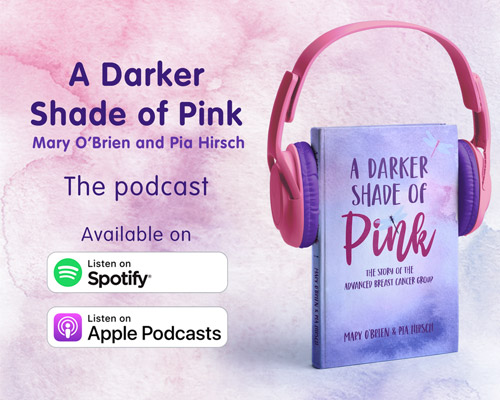Dr Vlad Andelkovic
Dr Vladimir Andelkovic: ABCG Workshop, March 2023.
INTRO and Q1 - Treatment Choices
Mary O’Brien starts our March workshop by explaining the question and answer format and presenting Dr Vladimir Andelkovic. Vlad then talks about the factors that are taken into account when determining a treatment plan for someone who has just been diagnosed with Metastatic Breast Cancer.
Q2 - Can we Drive our Treatment?
Dr Vladimir Andelkovic answers the question about the appropriateness of patients driving their own treatment. He explains that this varies among Oncologists, but he personally considers several factors when discussing treatments, including the patients’ opinions.
Q3 - On Team Work
Dr Andelkovic continues the discussion by explaining how oncologists work together in various ways and the advantages of sharing their experiences and challenges.
Q4 - Genetic Testing
Dr Andelkovic is asked about genetic testing. He talks about how increasingly common it is becoming, before distinguishing between genetic and genomic testing. He then goes on to explain how the data obtained from these tests can be used to develop and apply certain treatments.
Q5 - When Should Our Daughters Be Screened for Breast Cancer?
Dr Andelkovic discusses the appropriate time for daughters of breast cancer patients to undergo testing. He outlines the factors that are taken into account when determining the optimal timing for testing and how to begin this process.
Q6 - New Developments in Drug Treatment
Dr Andelkovic talks about a new treatment involving a new type of drug called antibody-drug conjugates or ADCs. He describes how they function and the benefits they offer.
Q7 - Financial Implications of Outliving your Prognosis
Dr Andelkovic is asked about the financial implications of out-living a prognosis. He offers a medical perspective, talking about how these situations can arise when someone responds well to treatment.
Q8 - Remission
Dr Andelkovic talks about when oncologists choose to use the term “remission” to describe a patient’s condition.
Q9 - Cumulative Effects of Long Term Treatment
Dr Andelkovic discusses the effects of specific medication when asked about long term treatment.
Q10 - The Uses of Radiation Therapy
Dr Andelkovic explains how and when radiation is used, which types of cancers it treats, and what benefits the patient receives from the treatment.
Q11 - On Zoladex
Dr Andelkovic answers a question about Zoladex and explains its mechanism of action and why it can be used for a prolonged period. He also points out alternatives to this treatment and when a patient might consider this.
Medication
Ask the pharmacist for an information sheet about any new medication, and whether there are any glaring contra-indications it would be helpful for you to know about.

